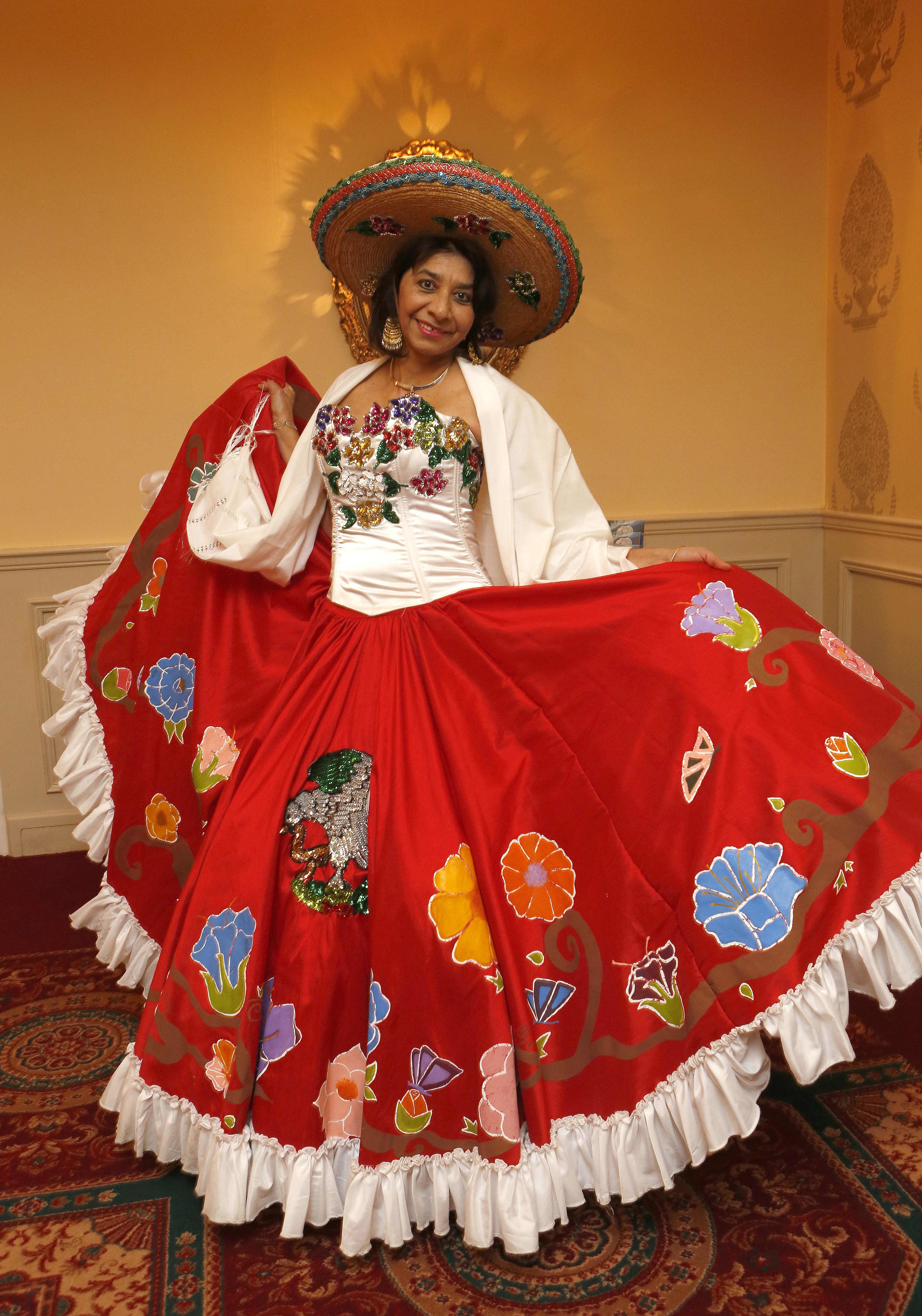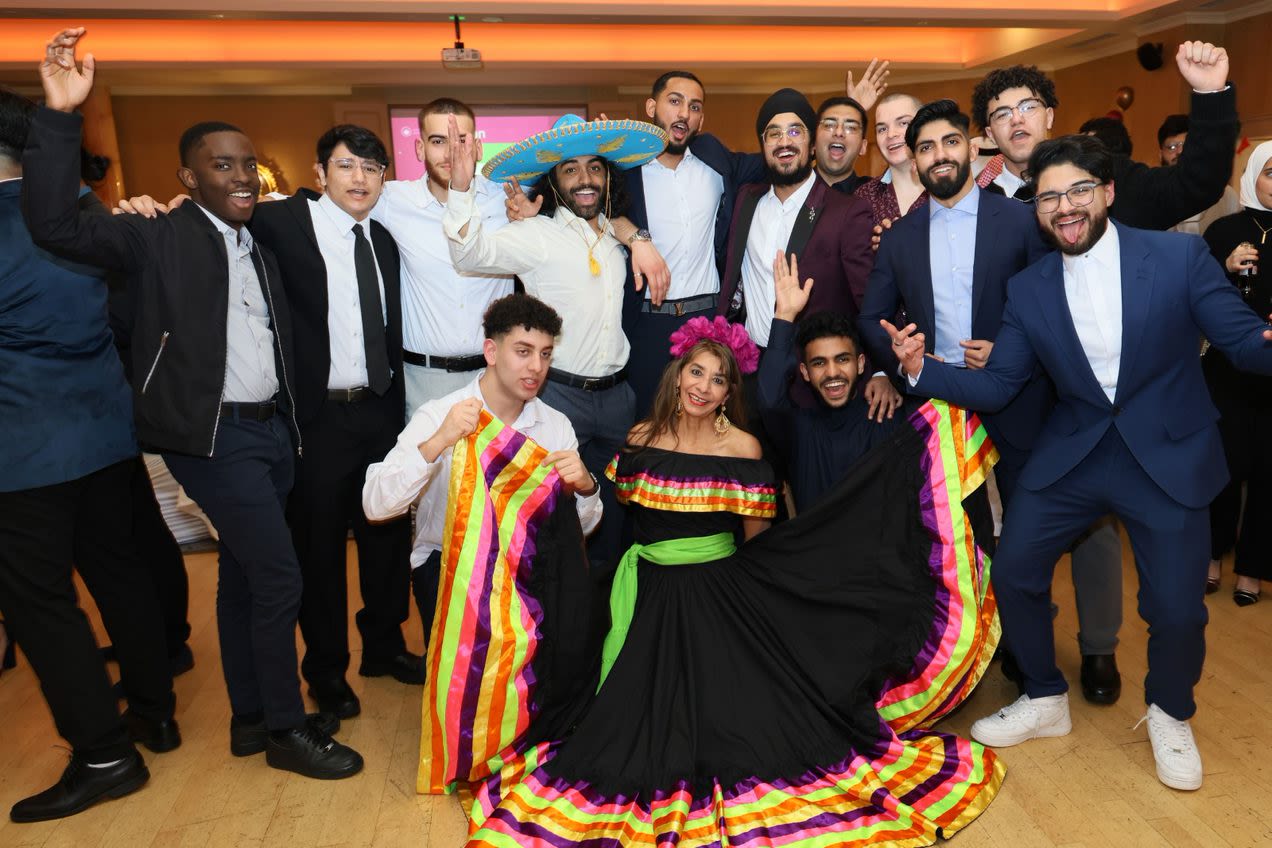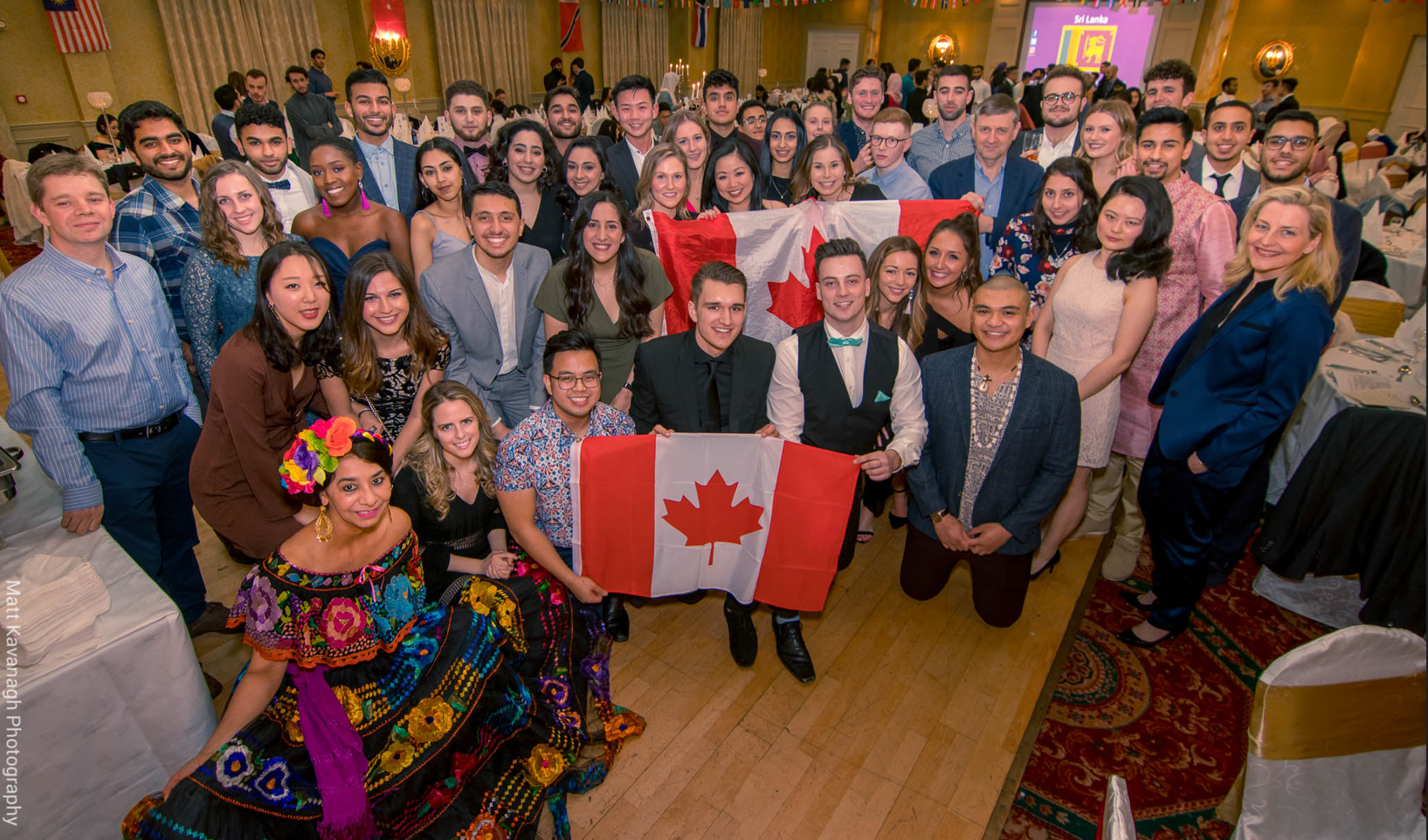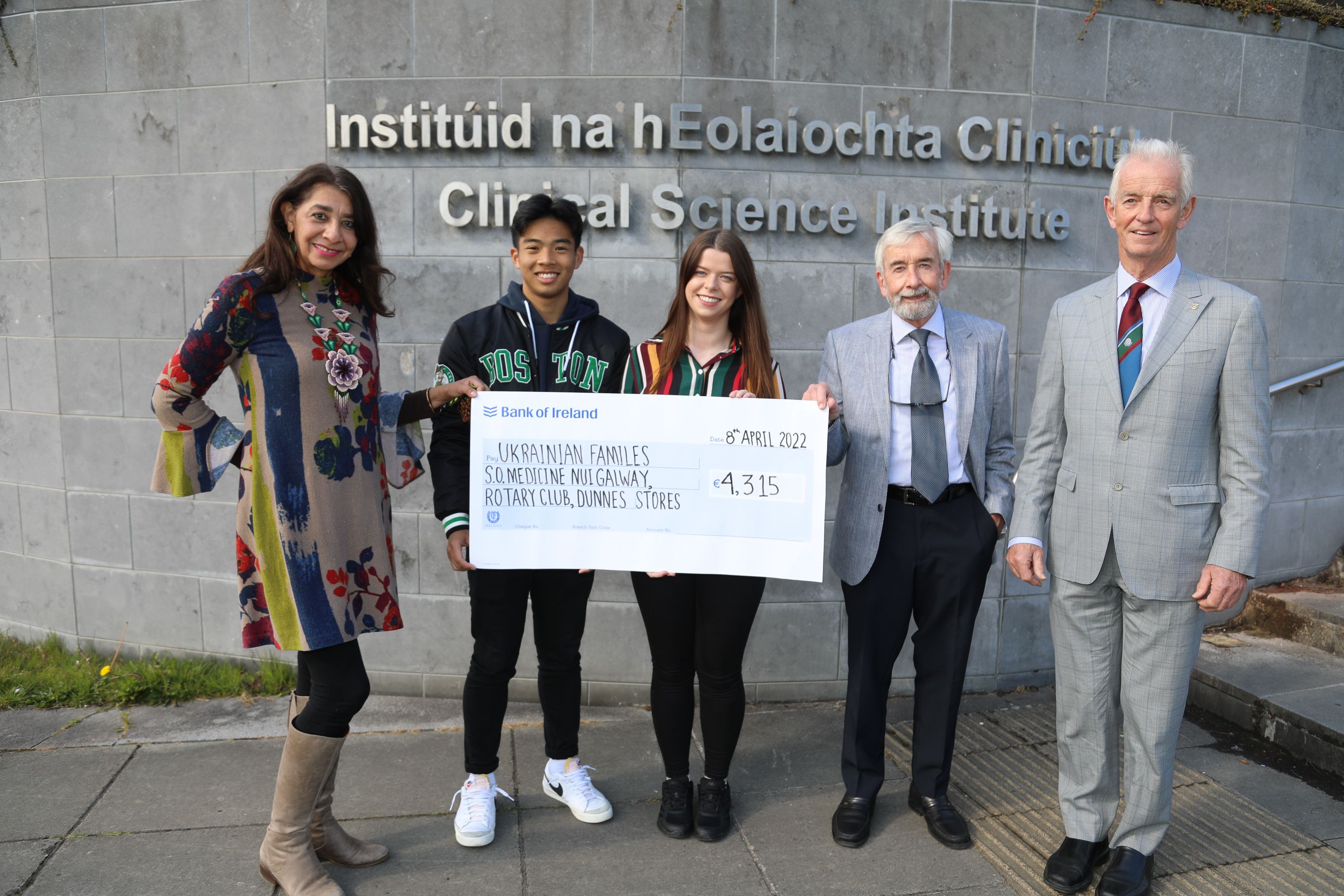Gloria Avalos
Assistant Professor of Research Methods and Medical Statistics in the School of Medicine

Work
What’s your job title?
Assistant Professor of Research Methods and Medical Statistics in the School of Medicine
How long have you been working here?
I first started working in the then Medical Faculty in the Department of Experimental Medicine in 1990 (33 years ago)
Where did you work before this position?
I worked as an industrial engineer and data analyst In the industrial sector in Mexico. In addition, both before and during my employment in the University of Galway, I have also tended to my ‘other’ work as a mother of three children!
What does your day-to-day look like?
My day-to-day consists of some of the following duties – though thankfully not all on the same day: preparing material for undergraduate and postgraduate lectures; designing and delivering workshops on research methods and statistical analysis techniques for those students who are carrying out investigations or writing dissertations; writing in-class mini-tests, end of semester and repeat exams; marking of assignments, student presentations and examinations; marking postgraduate assignments / research project write-up, mentoring a group of First Year medical students and of course, writing and answering e-mails.
Administration and organisation of timetables for lectures, presentations, exams, students’ issues, meetings with the External Examiner.
Meetings as a: The Module Lead of ‘Professionalism-1’ and as a mentor a number of the First Year students.
Meetings with: The Curriculum Review Committee, Research Committee Working Group; the Undergraduate Research Committee, postgraduate and undergraduate students especially those involved in research projects; the Data Safety Monitoring Board (DSMB) Committee and with colleagues regarding research and publication collaborations.
When would someone come to you?
Students come to talk to me if they have queries about the modules that I teach; if a student, staff or clinician has a statistical analysis query or database s/he would like analysed; students with personal issues and they need to talk with someone. Many of the students that come to talk with me are international students.
In the main, students and staff tend to e-mail me to make an appointment but others just come directly to my office


How do you prefer to start your work day?
With my ‘to-do list’ as it guides me through the various tasks that should be carried out on a given day.
How do you prefer to end your work day?
Well, simply being happy to have accomplished the duties of the day!
What’s your favorite task at work?
I enjoy the challenge of lecturing on Research Methods and Medical Statistics to First and Second Year undergraduate medical students. It’s a lovely feeling to see the students’ progress on these subjects and their increased understanding over time of the importance of these disciplines as the foundation for evidence-based medicine decision-making.
In fact, in Third Year, I lecture on Evidence-based Medicine (EBM) with the students working on searching for and interpreting published systematic reviews with meta-analysis to decide the best treatment for hypothetical clinical cases. Through this process, as a culmination of three years of engagement with the students, it is through the EBM module that students fully appreciate the relevance and importance of statistics in medicine. By learning how to identify and evaluate the best available evidence and critically appraise updated evidence, students are capable of drawing upon the evidence contained in the systematic reviews and meta-analyses to support optimal clinical decision-making.


What motivates you at work?
Most especially I am grateful for those students – of which there are many – who are always eager to learn. I’m very happy working in the School of Medicine in Galway.
Receiving positive feedback from students is naturally very motivating for me. One such example of positive remarks from a student evaluation of one of my modules is below.
"I loved how engaging and approachable Prof. Avalos was within the module. She made sure that students comprehended concepts and would not mind explaining the topics again to anyone who did not understand. Her detailed workshop documents were greatly appreciated as the instructions provided were simple and easy to follow. The module reviews that Prof. Avalos performed were helpful and informative. Additionally, the statistic presentation was a wonderful way to assess the information that was learned throughout the module"
What’s the most exciting part of your job?
To have the opportunity to promote equality and inclusion in the different cultures within the School of Medicine where the students – both Irish and international – have the opportunity to share their cultures with one another. The internationalisation of the University of Galway, including that of the School of Medicine, is a great attribute of the university.
As an aside, it merits pointing out that annually a special ceremony, the ‘International Medical Students Dinner’ is celebrated. Initially, from 2004-2007, the event was only a dinner held on behalf of the international medical students.
In 2008 I decided to draw upon the fabulous cultural diversity and talent amongst the students by introducing a series of singing and dancing performances by many students representative of their own traditions. Well, it turned out to be a great success enjoyed by more than 300 students and staff at the dinner. Thereafter, I have continued organising the annual International Medical Students Dinner and It’s a wonderful feeling to see all the students very happy and relaxed while they are enjoying the event and meeting other students.
Amongst other administrative things I organise the student performances which gives me the opportunity to meet the students in a different environment (outside the classroom) and to better my own knowledge about and appreciation of the fantastic artistic talent of so many of our students.
Find below some feedback by those who attended the event this year in February:
"Thank you for the amazing experience you have given us through the International Student Dinner, the salsa lessons, your tireless efforts in bringing us together and creating a warm and welcoming atmosphere have left a profound impact on all of us. You not only gave us an amazing opportunity to learn a new dance, but you also gave us the chance to connect with each other and build meaningful relationships. The international student dinner was a celebration of our diversity a statement of the inclusive community that you have nurtured. Your generosity and commitment to making our university experience unforgettable is truly remarkable. Thank you for being an incredible professor, mentor, and friend"
"Thank you so much for organizing all of these events. Especially the Chinese dragon dance. I am really touched by this. In a foreign country without family, when I was performing the Chinese dragon dance it made me feel like home. Thanks again"
"Thank you for making me believe in myself and giving me the confidence to perform. You are a beautiful person in and out and we love you"
What’s a work-related accomplishment that you’re really proud of?
I am very proud of the Berman Prize that has been awarded annually to two Fourth Year medical students for over 40 years. The Berman Prize, based on merit, is presented to the two students who obtain the highest marks in my Research Methods and Medical Statistics module.
This award consists of a four-week summer clinical elective in the renowned Hennepin County Medical Center, the teaching hospital of the University of Minnesota, USA. I feel very proud to be involved with this distinctive recognition and learning opportunity granted to the students who, through this placement, gain valuable clinical knowledge and experience.
I have been coordinating the Berman Prize since the year 2000 on behalf of University of Galway and the School of Medicine.
Find below feedback from students after they had returned from their clinical placement in Minnesota:
"The elective itself was amazing, and I loved every second of it. The module I did was paediatric haematology/oncology. The clinics were all insanely interesting as they were often specialist clinics for rare diseases for example Fanconi anaemia or Adrenoleukodystrophy (ALD) both very rare conditions, and it was so interesting learning from specialists of these diseases who treat patients coming from all around the world"
"My Minnesota experience was very educational. Firstly, it was huge benefit to be on a ward round as it was basically a one-on-one teaching session in the corridors after every patient seen. I was expected to contribute at least one patient every day. My Fellow would let me present to him first, before the Consultant. By doing this it was far more beneficial to my learning than a normal ward round at home (in Ireland). I was involved in various procedures, from colonoscopy to endoscopy and surgery. I even got the opportunity to see a liver transplant – a lengthy procedure. The hospital was the country’s leading hospital for liver transplants. From studying in Final Year now it’s remarkable just how much of what I learned in Minnesota is relevant here"
"The elective itself was amazing. I would attend clinics and gained excellent clinical exposure to a wide variety of patients with congenital heart disease and other paediatric conditions. I had never auscultated so many chests and heard so many murmurs. A Resident would give me one-to-one tutorials on the anatomy and pathology of congenital heart disease, a truly unique and invaluable experience. I learned so much from him that we even looked at some conditions not mentioned in the Lissaur Textbook of Paediatrics. I learned a great deal from everyone and would highly recommend the experience to anyone else"
"I was assigned Neurosurgery at University of Minnesota, Fairview Hospital. Surgeries took at least 10 hours each. I learnt how to use the suction, helped with the closing up and even screwing the bone flaps back onto the skull. Procedures that I saw included cerebral bypass, aneurysm clipping, temporal lobectomy, tumour resection, MRI-guided laser ablation, endonasal endoscopic surgery, deep brain stimulation surgery and spinal surgeries. Overall, although I found this elective quite challenging, I had a great exposure to Surgery and I feel that it will benefit me in the future"
What’s the biggest misconception people have about your position?
That the subject material – Research Methods and Medical Statistics – is not relevant to the medical curriculum. This is especially the case regarding the latter subject given that Statistics seems out-of-place in undergraduate medical studies even though it is very closely aligned with evidence-based medicine.
What’s something you find challenging about your work (What are the toughest challenges you’ve had at work)?
The year 2018 marked the 40th year of collaborating with the University of Minnesota regarding the previously mentioned Berman Prize. We planned to celebrate the 40th anniversary by travelling to the Berman Center in Minneapolis and presenting a framed plaque as a sign of appreciation from the School of Medicine for giving the placement opportunities to our students over all those years. Unfortunately, due to a number of factors, that in-person visit did not take place. Rather, a framed designed list of the names of the winners of the Berman Prize from 1998 to 2018 was sent.
Closer to home, it would be highly appreciated if the names of the awardees of the Berman Prize were also made visible in Clinical Science Building, as is rightly done with the all other student award winners from the various clinical specialities.
Who do you look up to within the company (Who’s someone you admire)?
I admire and trust Professor Dr Fidelma Dunne, Dr. Rosemary Geoghegan, Prof. Peter Cantillon and Prof. Gerard Flaherty.
What’s the coolest thing you’re working on right now?
Collaborating with SOM colleagues on an important manuscript which we are seeking to publish in a high impact factor journal.


Personal/Social
What was your first paying job?
Ireland: Researcher-Lecturer, Department of Experimental Medicine, University College Galway (UCG)
Have you ever met anyone famous?
Yes, some politicians such as Taoiseach Enda Kenny, President Michael D. Higgins, President of Mexico Vicente Fox, The crown Prince of Dubai, UAE, some Ambassadors, athletes, artist.
Where did you grow up?
Mexico
What’s the best book you’ve read recently?
Becoming Michelle Obama
Are you a cat or dog person (or neither)?
Dog
Are you a coffee or tea person?
Herbal tea
What’s your favorite thing to do on the weekends?
Spend time with family. I love to dance, go for walks and gardening
